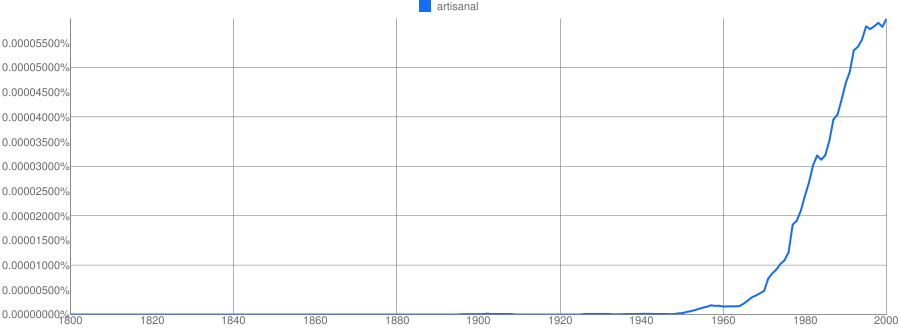As an AmE speaker, the word 'artisanal' sounds very new to me.
I see it every where nowadays on advertising and packaging for grocery store items like bread, cheese, olive oil, and I've seen it associated with whiskey and beer (presumably an adjective for 'microbrewery').
It's modern meaning is clear: 'artisanal' is 'made by an artisan' (rather than mass produced), or 'in the style of an artisan' (that is, mass-produced but with ingredients and process ending in a product that seems less industrial than others). For example, 'neo-Tuscan bread' and the word 'artisanal' appear on the same packaging for a loaf of bread.
Google NGrams has:

with a large increase since the 60's. Looking at the links there, the 70's are full of references, but mostly to 'artisanal fisheries' (which sounds like a euphemism for 'local' 'non-industrialized' or 'subsistence'.
My question is is there any specific instance or set of instances where the marketers got hold of this? Was 'artisanal' used for other than fisheries back then? Was it used in the current sense of 'craft/hand-made' before the current marketing faux-folksy onslaught?
